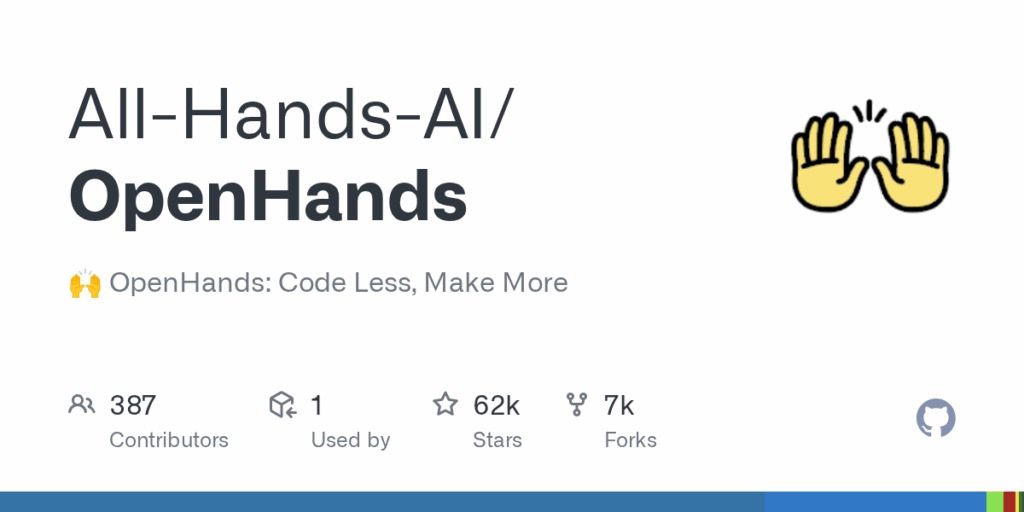OpenHands
Basic Information
OpenHands is an open platform for building and running AI-powered software development agents. The project provides a complete agent environment that can modify source code, run shell commands, browse the web, call external APIs, and perform developer tasks automatically. It targets individual developers running a single-user instance locally or via OpenHands Cloud, and includes both a GUI server and a CLI mode. The README documents local launch options (a recommended CLI launcher using uv and a Docker image), configuration steps such as selecting an LLM provider and adding an API key, and operational notes like recommended LLMs and migration hints for older versions. The repo is community-driven, licensed under MIT, accompanied by documentation, an arXiv paper, a public roadmap, and channels for community support and contributions.








